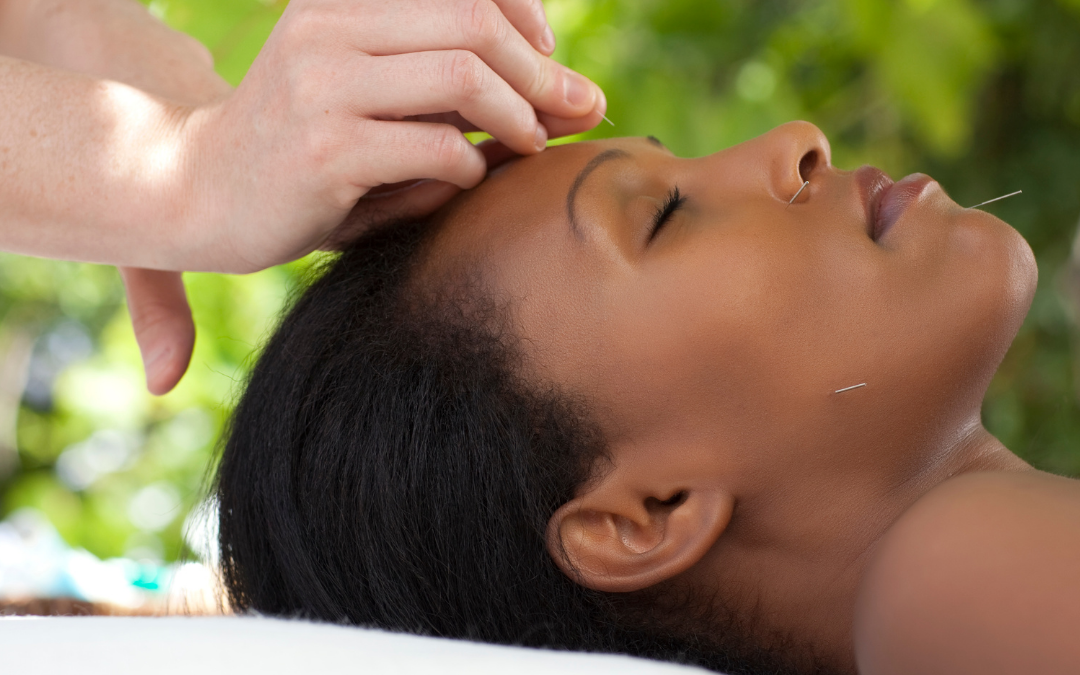What is Anxiety?
We have all experienced anxiety in one form or another at some time in our lives. Whether it be acute anxiety due to a sudden stressful situation or ongoing chronic anxiety that overwhelms our physical and emotional selves and causes serious health and personal issues, research suggests that up to 30% of the global population suffers from anxiety at any given time.
Symptoms of Anxiety
Anxiety can result in a variety of symptoms, including but not limited to, shortness of breath, palpitations, panic attacks, headaches, physical pain, insomnia and depression. Anxiety is complex and affects each person differently – it is pervasive in our society and the general treatment is counselling, medication and detailed advice around diet and exercise.
Acupuncture and the Nervous System
The autonomic nervous system is composed of both the sympathetic (fight or flight) and parasympathetic (rest and digest) nervous systems. These systems cannot be directly controlled. However, with acupuncture and other practices, we can have a profound regulating effect. Stress is a natural way for us to manage situations, keeping ourselves and those close to us safe, and ensure survival.
Acupuncture and Stress
Long term stress can also have intense repercussions on our sex hormones, sexual health, emotional health and well-being, as well as our digestive health. Many of these common symptoms can be traced back to our innate stress response. Being out of balance and more in the flight-or-fight response, than the more healing and nourishing rest and digest state of the parasympathetic nervous system.
Acupuncture is a slow medicine but it does work to regain this balance, and shift things internally. With regular treatments patients report that they are not as irritable, sleep is deeper, or feelings of anxiety have decreased. The change with these therapies takes time, but is so easy and pleasant in the process. Acupuncture nearly always feels good and beyond the immediate relaxing experience, there is change over time to one’s stress levels.
Acupuncture Improvements
No matter what we are treating, a feeling of relaxation and peacefulness are common side effects of acupuncture. Some of the improvements that patients report both anecdotally and in research include:
- Better Sleep
- Reduced irritability and grumpiness
- More feeling of calm and regulation of emotions
- Improved Digestion and appetite regulation
- Improved Fertility and Sexual Health
- Regulated hormones
- Better self-esteem
- Higher more stable energy
- Improved libido
- Higher focus
- Better circulation
Acupuncture and Anxiety Results
Antidepressant medications come with a list of potential side effects, and acupuncture too doesn’t come without risk. However, unlike some antidepressants which may make your anxiety worse, acupuncture will not. One of the key points that research authors emphasize is the “dosage” of acupuncture is important in helping patients get results, both in number of points per session, and frequency and duration of the treatment plan. In studies where patients received only 1-3 points per treatment, or got treatment only once every 2-4 weeks, results were decreased. In studies where patients received more points, and treatments at least weekly, results increased.
RESEARCH – Now patients and practitioners have alternative and reliable methods to manage anxiety disorders. The most recent clinical studies support acupuncture as a valuable and viable therapeutic treatment for anxiety, stress and depression.
Acupuncture and electroacupuncture for anxiety disorders
“Overall, there is good scientific evidence encouraging acupuncture therapy to treat anxiety disorders as it yields effective outcomes, with fewer side effects than conventional treatment.”
Electroacupuncture and stress/depression
“Electroacupuncture improves depressive behavior faster and with fewer adverse effects than antidepressant medication” (Duan, DM. 2016) “Acupuncture and Electroacupuncture (EA) can support and outperform medication for depression and anxiety without side effects”
Electroacupuncture and Anxiety
“Acupuncture Increases Nocturnal Melatonin Secretion and Reduces Insomnia and Anxiety” (Warren Spence, 2004) “Acupuncture reduces anxiety and improves sleep quality”
Acupuncture and PTSD
“Symptom reductions at end treatment were maintained at 3-month follow-up for both interventions. Acupuncture may be an efficacious and acceptable non-exposure treatment option for PTSD.”
Evidence Based Acupuncture Review of Research
“The largest of these studies, which included 120 randomized patients, found that acupuncture had a large effect on reducing anxiety and depression compared to conventional treatment involving pharmacological approaches and psychotherapy, with over twice the reduction in symptoms”
Acupuncture and Chronic pain/Stress
“Responders…were found to be less depressed, less passive and overly conventional, have shorter duration of pain, endorse less frequent exposure to stressors, and have less serious non pain-related illnesses. The findings are viewed as linking the intractability of pain states with psychosocial factors which may directly interfere with response to somatic modes of therapy or which may interfere via alterations of tonic neurohumoral factors.”
Electroacupuncture and Stress
“The results of this study indicate that electroacupuncture at a specific point blocks the stress-induced elevations in the nervous system, which may be the reason why it has stress reducing effects. “
Psychology Today Review of Acupuncture Research and Evidence
“Research findings support acupuncture as a treatment of anxiety.”


Recent Comments